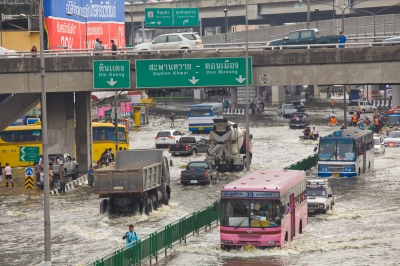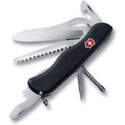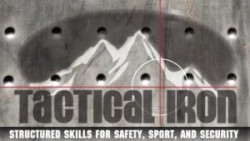It is interesting to me that as Hurricane Gustav neared, people watching TV just casually said “Well, they better evacuate.” Which brings to my mind a nagging question:
“Have YOU ever been forced to evacuate?” Rapidly followed by “How easy is it?”
I mean really, how easy is it to get the kids, family, pets, and all the gear necessary to leave for an unexpected event together and leave. I have never been forced to evacuate, but damn the headache involved is pretty stressful in itself for me. I also don”t live in Louisiana, but I do live in a state where there has been forced evacuations due to chemical spills, shootouts, tornadoes and floods.
First, how do you afford it? It can”t be cheap to just miss work, use extra gas, stay in a hotel, eat on the road, and pay for any tolls, medical emergencies, and whatever else you encounter during the hopefully motorized vehicular evac. That is if you have a vehicle road-worthy enough to make a trip somewhere out of state. How many of us have the sick days at work? What if you have a job where you simply cannot leave, and the rest of the family must leave without you, what then?
That”s a short look at the financial end. If it is life or death, and you must do it with what you have on hand I guess there is no choice. What about logistical concerns such as vehicle, gas, food, where to stay, where to go, who to leave, take, and whom to contact etc. If I were to pack up now tonight, I simply wouldn”t have enough clean underwear to begin with. Sounds humorous but its true. What would I do with my pets, plants, collectibles, valuables, trash, dirty dishes and so forth?
At the least I”d have a smelly place to come back to. With a hurricane or other disaster. you might NOT have a place to come back to. So with this reality plainly for folks to contend with, how do you not prepare?
The question is not easy to answer.
Image courtesy of Witthaya / FreeDigitalPhotos.net
Back to financial concerns. Who has the money when life is hectic enough and filled with mini-disasters. My kid got sick, the car broke down, I”m late on the mortgage, I had to wire my parents some money, birthdays, it just never stops!
How many of us have life insurance? Health insurance? Car insurance? Investments or investment properties? We need to change our perspective on disaster preparation and begin to consider it a long term and low-risk investment. It”s really as easy as that. And it is just like car insurance; when you need it you REALLY need it and right now!
Example: A high quality tent is about $400.00 and I”m talking a four-season tent designed for three people. Basically the kind that houses people on Everest and on the Appalachian Trail. These tents can be lived in rough, hard conditions for fairly long amounts of time. A tent like this CAN be used to camp, hunt, fish, or use for the kids in the backyard. You can definitely use the tent, and still have it for emergencies. A long-term low-risk investment with the added benefit of “you can use it now.”
Let”s look at another example: Bottled water. Same thing as the tent. Durable design, safe, lasts a long time, can use it now or save it for an emergency. Need I go on?
It really is as easy as buying a few things when you have the cash. You can use a credit card if you want, but most gear is under $500 and this includes firearms. Why not save a little cash in the savings account, earn some interest and then get the money one day and buy some gear. No interest to pay this way. Some survival gear makes good presents too. Who hasn”t given someone a flashlight, Swiss army knife, or a pair of gloves as a gift sometime in their life?
Cash on hand is good too. You really need to have a little cash to grab for an emergency. Believe me, there will be a line at the ATM when you are evacuating the city in an emergency. Everyone will be doing the same stuff, so don”t be surprised when bottled water, flashlight batteries, and fuel is gone or tripled in price. There is always someone out there ready to capitalize on your misfortune, emergency or not.
For those of us without any extra funds: You can do allot by simply using what you have. If you have a suitcase, gym bag, or even a trash bag that you can use. pack it now. Put in extra clothes, blanket, shoes, kitchen knife, tools, canned food, jar of pennies etc. Just because you are broke doesn’t mean you don”t have the gear needed, you might have to search or be creative but what matters is that you pack it now.
In closing, although survival and disaster preparations are somewhat expensive it really pays to have the gear when you really need it. Ever have your car run out of gas in the middle of nowhere? Or gone to change your flat tire and realized you had no lug wrench? No car jack? No spare tire? It is easy to sit in an armchair and watch television and carelessly judge people and their choices. But when the person is you or your loved one, judgment could be very harsh. It could come in the form of needless suffering, hassle, or even cost one their life.
Basic Evacuation Kit:
- Backpack or duffel bag
- Bottled water, water purification pills or pump, container to carry water, and to boil water
- Lighter, matches, magnesium starter, cotton & Vaseline
- Map of state
- Identification, vehicle papers, phone numbers
- Cellular phone
- Set of good rugged travel clothes and shoes/boots
- Hat, jacket, gloves, sunglasses
- medications, medical kit
- Travel foods such as jerky, dried fruits, fresh fruits, chocolate, snacks for kids
- Camp Axe and folding shovel
- Tent
- sleeping bags or blankets
- camp mattress
- Flashlight, extra batteries, lantern, candles
- Toilet paper, paper towels, wash soap, towel, mirror
- Cash
- Radio and batteries
- Knife, can opener, eating utensils
- Camping or backpack stove, pots and pans for cooking, cooking oil, wash cloth
- Some form of personal protection: Mace spray, legal firearm, baseball bat. something!
- Automotive parts, spare tire, gas can, jumper cables, fix-a-flat, jack, basic tools
Disaster kits must be portable, water resistant, and ready to go. Place it in the trunk, by your door, in the garage, or in a closet by your entry/exit. Remember to keep it light, quiet, and pack essentials. Should not weigh so much that it cannot be carried for long distances on foot. Avoid military bags if possible, and make it something less obvious. Do not pack illegal items.










Recent Comments